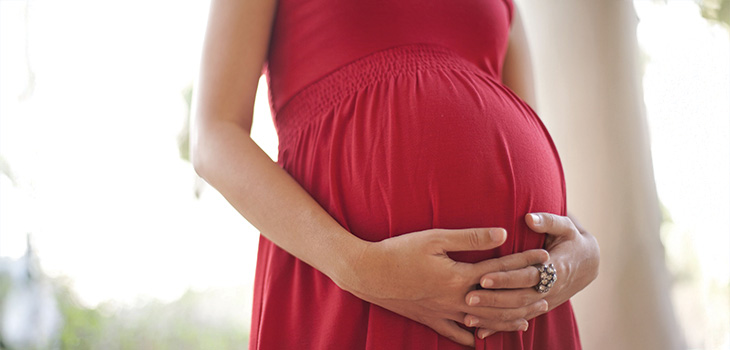*/

Casey Randall of AlphaBiolabs discusses the benefits of Non-Invasive Prenatal Paternity testing for the Family Court
Uncertainty surrounding a child’s paternity can cause significant complications in cases involving safeguarding, child maintenance, or parental responsibility, where the question of paternity can delay critical decisions, complicate care planning, and heighten tensions between parties.
While standard paternity DNA tests are now well understood and frequently used in the legal sector, many legal professionals are still not aware that paternity disputes can also be resolved before the child is born.
Thanks to developments in DNA testing, Non-Invasive Prenatal Paternity testing (NIPP) offers a safe, scientifically robust solution for determining paternity during pregnancy, with no risk to the mother or unborn child.
NIPP testing allows paternity to be established from as early as 7 weeks into pregnancy, with only a blood sample and cheek (buccal) swabs from the mother and cheek swabs from the alleged father(s) required.
Expert geneticists extract the baby’s DNA profile from foetal DNA found in the mother’s bloodstream and compare this with the DNA profile of the alleged father. The biological father will share DNA with the baby at every tested marker.
Unlike invasive forms of prenatal paternity testing which require cells to be obtained from the amniotic fluid or the placenta – carrying a small risk of miscarriage – NIPP testing is 100% risk free for mother and baby.
AlphaBiolabs’ NIPP test is the most advanced available and we are the only UK laboratory to hold UKAS 17025 accreditation for NIPP testing.
Establishing paternity during pregnancy offers clear advantages for family law professionals, social workers and local authorities involved in complex or time-sensitive family law matters.
Where paternity is in doubt, timely resolution can reduce conflict, accelerate proceedings, and ensure the welfare of the unborn child is prioritised.
NIPP testing is particularly beneficial in:
AlphaBiolabs’ NIPP testing represents the gold standard in prenatal paternity testing, analysing up to 153 DNA markers for unparalleled accuracy, and making it possible to confirm paternity from 7 weeks into pregnancy.
More reasons to choose AlphaBiolabs:
For more information, contact our New Enquiry team on 0333 600 1300/ testing@alphabiolabs.com or complete our online quote form https://www.alphabiolabs.co.uk/legal-test-forms/, and a member of the team will be happy to discuss the requirements of your case.

Uncertainty surrounding a child’s paternity can cause significant complications in cases involving safeguarding, child maintenance, or parental responsibility, where the question of paternity can delay critical decisions, complicate care planning, and heighten tensions between parties.
While standard paternity DNA tests are now well understood and frequently used in the legal sector, many legal professionals are still not aware that paternity disputes can also be resolved before the child is born.
Thanks to developments in DNA testing, Non-Invasive Prenatal Paternity testing (NIPP) offers a safe, scientifically robust solution for determining paternity during pregnancy, with no risk to the mother or unborn child.
NIPP testing allows paternity to be established from as early as 7 weeks into pregnancy, with only a blood sample and cheek (buccal) swabs from the mother and cheek swabs from the alleged father(s) required.
Expert geneticists extract the baby’s DNA profile from foetal DNA found in the mother’s bloodstream and compare this with the DNA profile of the alleged father. The biological father will share DNA with the baby at every tested marker.
Unlike invasive forms of prenatal paternity testing which require cells to be obtained from the amniotic fluid or the placenta – carrying a small risk of miscarriage – NIPP testing is 100% risk free for mother and baby.
AlphaBiolabs’ NIPP test is the most advanced available and we are the only UK laboratory to hold UKAS 17025 accreditation for NIPP testing.
Establishing paternity during pregnancy offers clear advantages for family law professionals, social workers and local authorities involved in complex or time-sensitive family law matters.
Where paternity is in doubt, timely resolution can reduce conflict, accelerate proceedings, and ensure the welfare of the unborn child is prioritised.
NIPP testing is particularly beneficial in:
AlphaBiolabs’ NIPP testing represents the gold standard in prenatal paternity testing, analysing up to 153 DNA markers for unparalleled accuracy, and making it possible to confirm paternity from 7 weeks into pregnancy.
More reasons to choose AlphaBiolabs:
For more information, contact our New Enquiry team on 0333 600 1300/ testing@alphabiolabs.com or complete our online quote form https://www.alphabiolabs.co.uk/legal-test-forms/, and a member of the team will be happy to discuss the requirements of your case.
Casey Randall of AlphaBiolabs discusses the benefits of Non-Invasive Prenatal Paternity testing for the Family Court


The Bar Council is ready to support a turn to the efficiencies that will make a difference
By Louise Crush of Westgate Wealth Management
Marie Law, Director of Toxicology at AlphaBiolabs, examines the latest ONS data on drug misuse and its implications for toxicology testing in family law cases
An interview with Rob Wagg, CEO of New Park Court Chambers
What meaningful steps can you take in 2026 to advance your legal career? asks Thomas Cowan of St Pauls Chambers
Marie Law, Director of Toxicology at AlphaBiolabs, explains why drugs may appear in test results, despite the donor denying use of them
The appointments of 96 new King’s Counsel (also known as silk) are announced today
Ready for the new way to do tax returns? David Southern KC continues his series explaining the impact on barristers. In part 2, a worked example shows the specific practicalities of adapting to the new system
Resolution of the criminal justice crisis does not lie in reheating old ideas that have been roundly rejected before, say Ed Vickers KC, Faras Baloch and Katie Bacon
With pupillage application season under way, Laura Wright reflects on her route to ‘tech barrister’ and offers advice for those aiming at a career at the Bar
Jury-less trial proposals threaten fairness, legitimacy and democracy without ending the backlog, writes Professor Cheryl Thomas KC (Hon), the UK’s leading expert on juries, judges and courts